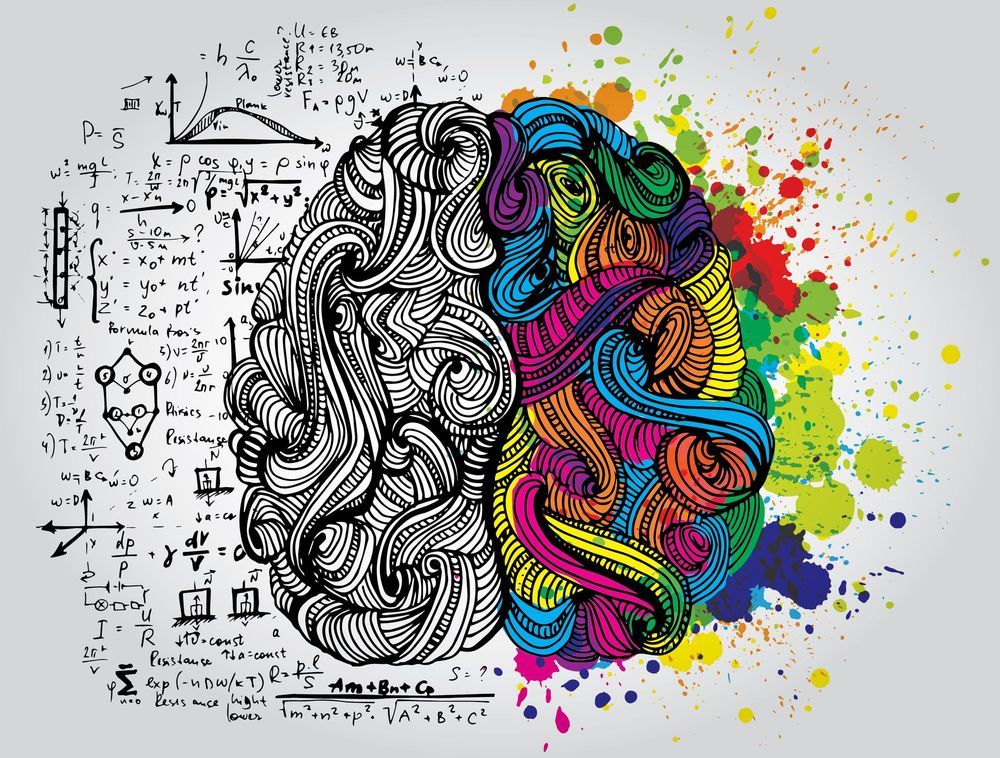The trendy concept of “dopamine fasting” actually finds its roots in established addiction therapies.



They found 68,809 cases of anal cancer and 12,111 deaths from the disease.
The vast majority of these cases are associated with the human papillomavirus, but about three-quarters of American adults don’t know HPV causes the disease, a recent study, also led by Deshmukh, found.
He called the findings “shocking.”

Several newly published studies are reporting evidence affirming a growing hypothesis that links inflammation with cognitive deficits. As well as associating inflammation with the cognitive deficits seen in conditions such as bipolar disorder and Alzheimer’s, some research is even suggesting low-grade systemic inflammation in healthy subjects can result in mental sluggishness.
For some time patients suffering from chronic inflammatory conditions such as rheumatoid arthritis or inflammatory bowel disease have reported mild cognitive deficits in association with their disease. Despite a number of correlational studies finding connections between inflammation and cognitive performance, homing in on any clear causal links has been a little tricky for scientists.
“Scientists have long suspected a link between inflammation and cognition, but it is very difficult to be clear about the cause and effect,” explains Ali Mazaheri, from the University of Birmingham. “For example, people living with a medical condition or being very overweight might complain of cognitive impairment, but it’s hard to tell if that’s due to the inflammation associated with these conditions or if there are other reasons.”
A custom-made aerial drone delivered a kidney to a Baltimore hospital, where it was transplanted into a patient who had been on dialysis for eight years.

Is there room for one more in the 2020 presidential race? Transhumanist Zoltan Istvan has declared he’s running for the White House as a Republican, complete with the campaign motto “Upgrading America” — a task he believes can be accomplished through futuristic technology and science.
One new press report describes him as “the cyborg who is running against Donald Trump.” Mr. Istvan appears ready.
“My team and I are ready to really push hard, get on primary ballots, and see if we can get conservatives to be more open-minded about the future. We’re excited that they will open up so that the far-left doesn’t totally own radical science and tech in the future. We think we can be instrumental in getting to GOP and libertarian conservatives to broaden their perspectives about these things,” Mr. Istvan told The Washington Times.

The notion of wearing lenses over our eyes to correct our vision dates back hundreds of years, with some even crediting Leonardo da Vinci as one of the first proponents of the idea (though that remains somewhat controversial). Material science and our understanding of the human eye have come a long way since, while their purpose has remained largely the same. In the age of wearable computers, however, scientists in the laboratories of DARPA, Google, and universities around the world see contact lenses not just as tools to improve our vision, but as opportunities to augment the human experience. But how? And why?
As a soft, transparent disc of plastic and silicone that you wear on your eyeball, a contact lens may seem like a very bad place to put electronics. But if you look beneath the surface, the idea of a smart contact lens has real merit, and that begins with its potential to improve our well-being.

Due to a lack of fossil records, the early evolution of snakes has been a mystery, until now. Paleontologists have discovered new fossils of the prehistoric legged snake, Najash that has helped solve the mystery of how this creepy-crawly evolved into the slithering reptile it is today.
Researchers have examined the fossils of Najash rionegrina, a rear-limbed snake from the Late Cretaceous period. it has been named after the Biblical legged snake, Nahash, who tempted Eve and Adam to eat the forbidden fruit in the Book of Genesis. Found in Patagonia, Argentina, the fossil has revealed that snakes not only had limbs 100 million years ago but also had cheekbones (jugal bone).
The study published in Science Advances reveals how snakes evolved from their lizard ancestors. Fernando Garberoglio from the Fundación Azara at Universidad Maimónides, Buenos Aires explained, “Our findings support the idea that the ancestors of modern snakes were big-bodied and big-mouthed—instead of small burrowing forms as previously thought.”


Cancer cells may owe some of their destructive nature to unique, “doughnut-shaped” DNA, according to a new study.
The study, published today (Nov. 20) in the journal Nature, found that, in some cancer cells, DNA doesn’t pack into thread-like structures like it does in healthy cells — rather, the genetic material folds into a ring-like shape that makes the cancer more aggressive.

A schism lies at the heart of the field of artificial intelligence. Since its inception, the field has been defined by an intellectual tug-of-war between two opposing philosophies: connectionism and symbolism. These two camps have deeply divergent visions as to how to “solve” intelligence, with differing research agendas and sometimes bitter relations.
Today, connectionism dominates the world of AI. The emergence of deep learning, which is a quintessentially connectionist technique, has driven the worldwide explosion in AI activity and funding over the past decade. Deep learning’s recent accomplishments have been nothing short of astonishing. Yet as deep learning spreads, its limitations are becoming increasingly evident.
If AI is to reach its full potential going forward, a reconciliation between connectionism and symbolism is essential. Thankfully, in both academic and commercial settings, research efforts that fuse these two traditionally opposed approaches are beginning to emerge. Such synthesis may well represent the future of artificial intelligence.